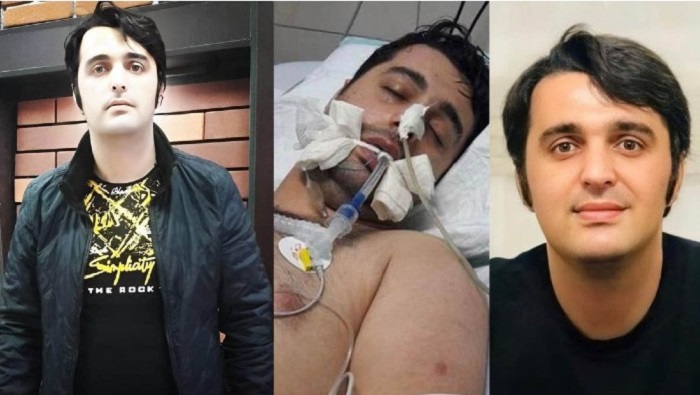
Javad Rouhi, 35, a native of Amol, was arrested in November 2022 amid nationwide protests. Reports reveal that he was brutally tortured by the Revolutionary Guards, so much so that he lost his ability to speak.
The regime subsequently sentenced him to execution thrice on vague accusations such as “spreading corruption on earth” and “waging war against God.” While these sentences were not executed due to considerable domestic and international outcry, Rouhi’s death comes amidst a surge in oppressive actions against critics, aligning with the anniversary of the 2022 nationwide uprisings.
The official account from the regime-associated Mizan News Agency states, “Javad Rouhi was transported to Shahid Beheshti Hospital in Nowshahr at 3:45 AM due to convulsions. Despite medical intervention, he passed away.” They cited an impending autopsy and toxicological investigation, also highlighting that Rouhi’s execution sentence was still under review.
Fearing uprisings, the regime now extends its repression to prisons, universities, and the families of prisoners and martyrs.
— Maryam Rajavi (@Maryam_Rajavi) August 31, 2023
However, counter evidence has emerged. A video on social media shows Rouhi conversing with his parents just a day before his death without any visible symptoms of serious illness. In recent times, suspicious deaths, allegedly caused by torture, poisoning, or other obscure methods, have become alarmingly frequent in Iranian prisons.
Iranian opposition President-elect Maryam Rajavi of the National Council of Resistance of Iran (NCRI), called upon global human rights organizations to probe Rouhi’s death, emphasizing that the regime’s repressive reach has penetrated prisons, academic institutions, and even affected the kin of the imprisoned.
Today’s death in custody of 31-year-old arbitrarily detained protester Javad Rouhi again exposes the Iranian authorities’ abhorrent assault on the right to life amid an ongoing human rights crisis and must be effectively and independently investigated. 1/15 pic.twitter.com/al0jnFGyIS
— Amnesty Iran (@AmnestyIran) August 31, 2023
Subsequent to Rouhi’s passing, the regime covertly interred him in a nearby village, imposing rigorous security. Reports suggest that several attendees, including Rouhi’s family and friends, were arrested at his burial. The Tasnim news agency hinted at potential uprisings, asserting that some aimed to “disrupt Javad Rouhi’s funeral with provocative chants.”
A contingency of regime insiders, purportedly inspectors, visited Nowshahr Prison posthaste, striving to craft a narrative of Rouhi’s suicide. In a bid to bolster this narrative, Tasnim circulated a statement detailing Rouhi’s prior health issues, citing a history of methadone use and seizures.
The international human rights community remains outraged. Amnesty International condemned Rouhi’s death as an “abhorrent assault on the right to life,” highlighting his exposure to human rights violations, forced confessions, and a flawed judicial process. Amnesty’s statement on its X (formerly Twitter) platform urged a thorough investigation into the violations against Javad Rouhi, emphasizing the urgency of holding those responsible accountable.

MEK Iran (follow us on Twitter and Facebook), Maryam Rajavi’s on her site, Twitter & Facebook, NCRI (Twitter & Facebook), and People’s Mojahedin Organization of Iran – MEK IRAN – YouTu







